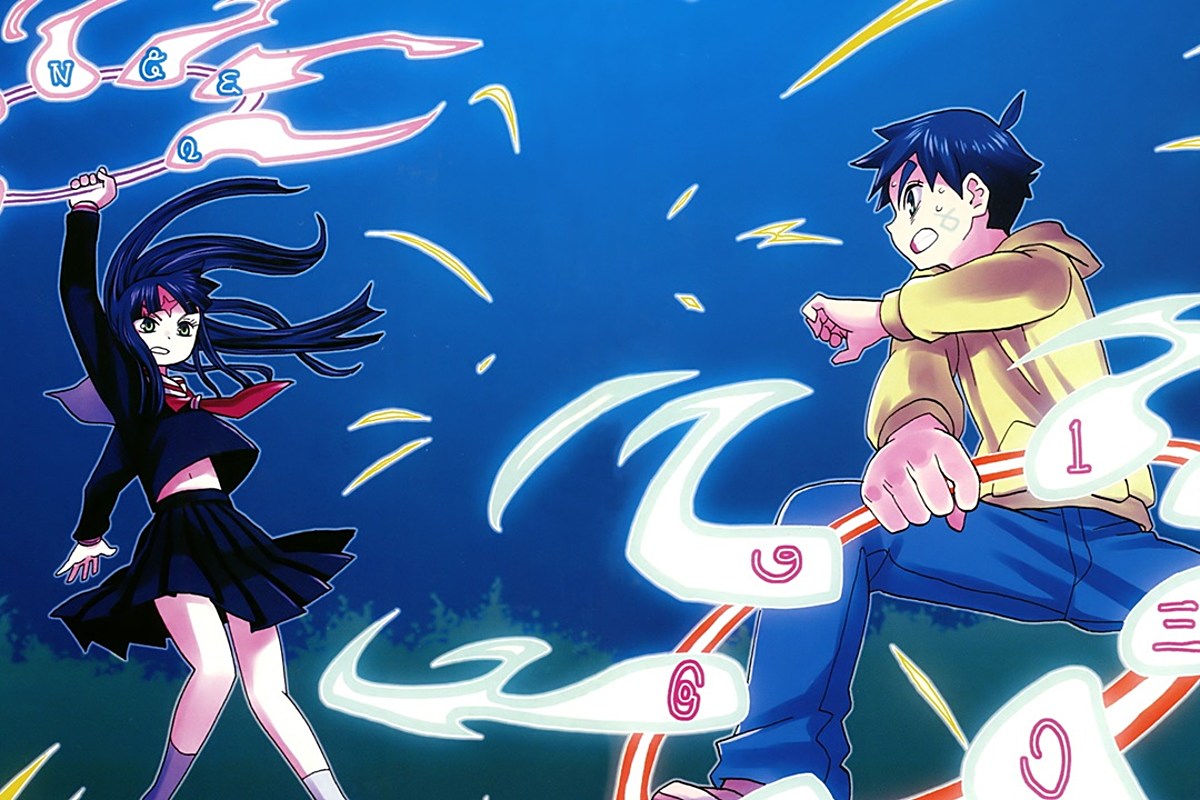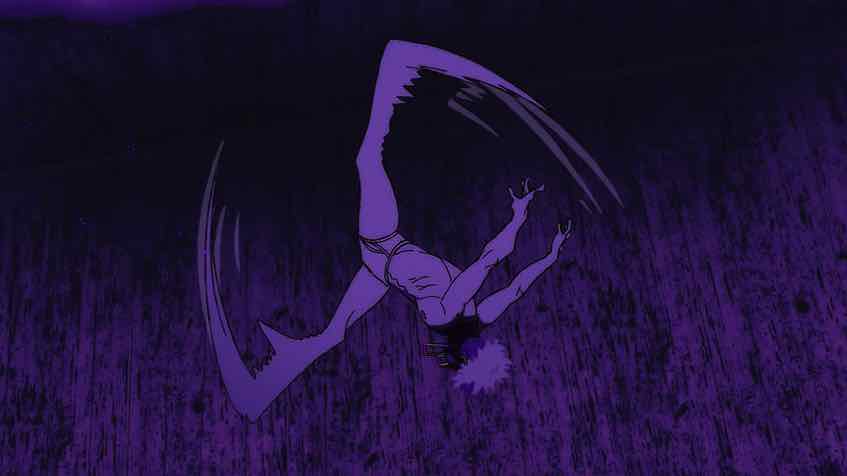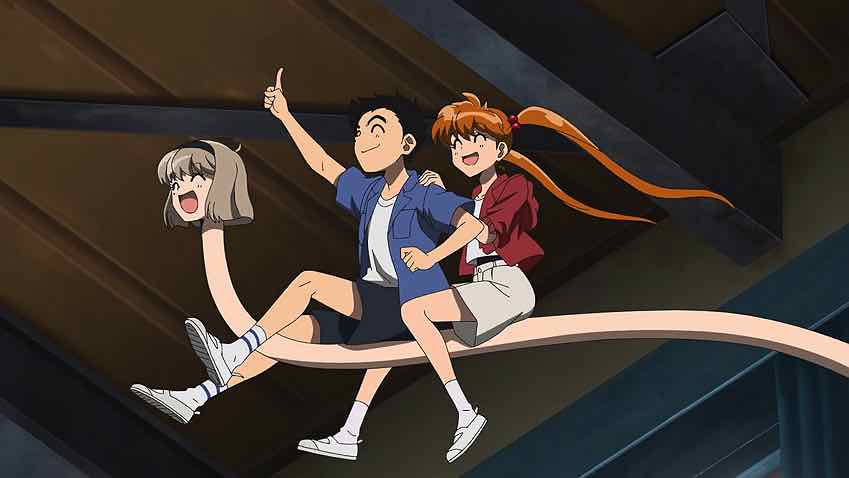So, because I decided to give everyone who guessed all 10 Top Ten shows for me a prize – and because everyone chose a top 5 list – I thought I’d combine them all in a single post. But first, LiA MVP Nicc commissioned a haiku about 2023, so let’s start with that. Sorry if it’s bleak, but- well, what can you do?
COVID, here to stay
Climate change is getting worse
Depressing, I know
Our first top ten winner, Samu, requested a “Top 5 Manga With no Anime” list. And he was very specific, which meant I couldn’t list YKK because it has an OVA (of sorts). So here is that list in no particular order:
- Vagabond – This one is pretty self-explanatory, really. How a manga this popular, this awarded, and this brilliant can – in Inoue Takehiko’s own words – never receive any interest in an adaptation is testament to how fucked up the anime industry is in many ways.
- Spirit Circle – Mizukami Satoshi’s best work, and IMO one of the best manga ever written. It could be done beautifully and completely in a single well thought-out cour.
- Otoyomegatari – Again, no brain surgery here. Very popular and, like Vagabond, has won pretty much every major major prize a manga can. In both cases I think anime is a little scared of just how stunning the manga artwork is.
- Haruka na Machi e – For me the unquestioned emperor of seinen mangaka (and maybe the best mangaka who ever lived) is Taniguchi Jiro. And “A Distant Neighborhood” is the best of his many great works. It received a Belgian film adaptation (Quartier Lointain) but surprisingly no anime. Or even a TV drama, as far as I’m aware.
- Yugami-kun wa Tomodachi ga Inai – Maybe the least heralded choice here, but a a series I love very much. Yugami-kun is so much more than you think it’s going to be – deeper, subtler, more painful. It transcends genre in a very subversive way and is thoroughly well-suited for anime.
Incidentally, I’ve done “Enzo Loves Manga” appreciation videos for three of these series, all available on the LiA YouTube Channel.
Next up (and in a similar vein), Skidda requested a “Top 5 Books of Japanese Literature That Don’t Have Anime Adaptations”. While it wasn’t specifically limited to fiction, I felt that was the intent so limited myself to that (more or less).
- The Pillow Book – Sei Shōnagon’s memoir may not strictly be fiction, but it reads like a great court novel in many ways. Sei Shōnagon was a great court rival of Murasaki Shikibu, and The Pillow Book is more or less contemporaneous with the more famous Genji Monogatari, widely regarded as the world’s first true novel. For my taste I actually find it the more interesting read.
- Kafka On the Shore – It’s a real shame that no Murakami Haruki novels have ever gotten anime. Recent controversies aside I think he’s an incredibly fascinating writer. And not only is Kafka my favorite of his novels, but the one I think best-suited to the anime medium.
- Heike Monogatari – Yes, I’m going there. I don’t consider that Saru thing an adaptation, and Inu-Oh – while worthwhile – is much more a riff on the theme. This is IMHO the greatest work of Japanese literature by far, and thoroughly deserves a proper anime adaptation.
- Kokoro – I couldn’t do this without a nod to the great Souseki Natsume, born and educated a few minutes from my old Tokyo apartment. I Am a Cat would have been my first choice but it already received an OVA years ago. Kokoro is a brilliant reflection on isolation and a transitional period in Japanese history.
- In a Grove – It got a movie of course – one of the best in this history of Japanese cinema, Kurosawa’s Rashomon – and has had several other adaptations besides. But Akutagawa Ryuunosuke’s watershed novel has never received an anime treatment, and would be a fascinating subject for one.
Finally we have Eugene T., who remarkably guessed all 10 of my picks for two years running. He requested “5 Standout Episodes From Shows/Manga You Otherwise Considered Average”. This one was the hardest for me, no question about it, because in most cases the shows I consider average don’t have a personal blogging history for me to fall back on and thus it’s very hard to remember all the possible candidates. I gave it my best shot…
- Tokyo Ghoul √A Episode 12 (Finale) – I think I can safely call this series average, because it was an adaptation fraught with problems from the start (including tensions between director Morita Shuuhei and the production committee). But this highly controversial final episode, largely original, stands as one of the most visually stunning and generally impactful anime episodes I’ve ever seen. It stands as a testament to Morita’s genius, sadly unseen in anime after the Ghoul experience scarred him.
- Kotoura-san Episode 01 – A tremendous beginning, a display of Ohta Masahiko’s exquisite touch with comedy and light character drama. Sadly the rest of the series never really achieved the same heights.
- Mashiro No Oto Episode 02 – This was a series that had many, many problems. But the music sequences and the brothers’ relationship ain’t ones, and this episode soared to tremendous heights focusing on both.
- Tokyo Magnitude 8.0 Episode 01 – Truthfully I could have chosen any of a few early episode of TM8. And “average” is a tough call, because this series was more along the lines of all or nothing – it was great until it totally jumped the shark. But I guess that averages out to average.
- Yakusoku no Neverland Episode 10 – The massive trainwreck that was season 2 is now the stuff of legend, but that shouldn’t gloss over the fact that the manga itself pretty seriously derailed in its second half (though not as catastrophically as the anime to be sure). It is indeed a pretty flawed work both in manga and anime form (the adaptation totally ruined one important character, for example). But for most of its early run it’s quite a good series, and Episode 10 of the anime is an absolute cracker – adapting probably the most emotionally powerful sequence in the entire series and doing it justice.





Marty
January 10, 2023 at 8:17 am*Looks at climate change and all the NOTHING that world governments are doing about it*
Damn, that Haiku hits really hard. Harder than I wish it would.
Stephen
January 10, 2023 at 11:15 amVagabond I can only wish. Since you are reviewing its second season already I thought a good contender for inconsistency is fumetsu no Anata e s1e1.
Guardian Enzo
January 10, 2023 at 11:20 amFinished top 10 in S1 so I don’t think I can call it “average”.
Stephen
January 10, 2023 at 11:06 pmI meant more in terms of unfulfill expectation as after seeing s1e1 I was convince it was going to be a top 3 anime but I agree the difference were perhaps not as wide as Tokyo ghoul.
Guardian Enzo
January 10, 2023 at 11:08 pmThe request was for “average” so that’s what I was going with! Even in the weakest anime year Fumetsu would still have overall been above average for me.
Eugene T.
January 11, 2023 at 9:36 pmtbh I’d been fine (and was more thinking of) with a wider definition of episodes just generally far above the standard of the rest of the show. Sorry for making it more difficult than it needed to be xd
Thanks for the prize! Both the Tokyo Ghoul finales were definitely where Morita chose to flex.
Nicc
January 12, 2023 at 2:21 pmThanks for the haiku, Enzo! Bleak, perhaps, yet also topical. I have been lucky to be able to evade it. Or, I did get it and nothing happened or it was mild enough that I passed it off as a cold.
Now, the climate change… Yep, that’s a problem. Summers around here used to be mild enough that we didn’t need A/C. Now, it’s pretty much a necessity. Summers in Japan have long been depicted as sweltering and I assume that they are hotter now than before.
Guardian Enzo
January 12, 2023 at 3:24 pmThey always seemed pretty brutal to me, so it’s hard to tell the difference. The numbers definitely say they’re getting here and the winters are producing less snow and cold in most of the country.
KM
January 13, 2023 at 1:38 amOut of curiosity, what do directors like Morita, or just anime staff in general, when they are not seen on any project for years after their last work? I mean, do they just get a regular job, even after having trained so hard so get such a position?
KM
January 13, 2023 at 1:44 amKenji Nakamura is one of the names that immediatly comes to mind, or Mitsuo Iso, that between Dennou and Orbital is credited as animator on just a handful of projects
Guardian Enzo
January 13, 2023 at 6:47 amInteresting question. Morita I know has done some industry work (promotional films, etc.). Sometimes they might get involved in live-action, like Hara Keiichi. But a lot of the time I’m not really sure.